TOP NEWS
Reuben's View
Latest News
Search
MOST READ
-
Nigeria Could Be Looking At Winning Team, If Atiku, Obi And El-Rufai Align’ – PDP
-
41-year-old missing daughter of popular Nollywood actress arrives Nigeria from Mali
-
2027: I’m Only Interested In Coalition Against Hunger, Poverty - Peter Obi
-
Your Endorsing Tinubu Means Nothing – Baba-Ahmed To North West APC Stakeholders
-
Nwifuru Increases Allowances Of Ebonyi Medical Doctors To N500,000
-
I’d rather be jailed than to comply with compulsory voting – Agbakoba
-
JAMB To Release Results Of 379,000 Rescheduled UTME Candidates Wednesday
-
[OPINION] Catholic Church, the Black Race, Politics, and the USA - Magnus Onyibe
-
[PRESS RELEASE] NIDCOM Facilitates The Return Of Adeola, The Daughter Of Actress Jumoke George From Mali
-
Security operatives arrest another ‘bandit’ during hajj screening in Sokoto
-
Abure on campaign funds: If I open my mouth, Obi and Otti will be like smelly eggs
782 times -
You can’t tax poverty, Plateau gov backs wealth-driven tax reforms
578 times -
Tinubu couldn’t have fixed mismanaged economy in 24 months – Oshiomhole
568 times -
Akpabio Gives Out N2bn Cash Grants, Vehicles, Equipment, Scholarships to Constituents
547 times -
Tinubu approves armed forest guards to secure Nigeria’s 1,129 forests
484 times -
Tinubu’s economic reforms are working, says British high commissioner
481 times -
Court criticises Natasha Akpoti for ‘improper’ social media conduct
471 times -
“Lord behold our tears” – FFK reacts to terrorists feeding newborns to dogs
438 times -
[OPINION] “Obilogy 101”: Has Attacking Peter Obi Become A Body Of Knowledge? - Isaac Asabor
422 times -
Live Vultures, Tortoises ‘Buried’ Inside – Abia Govt Speaks on Why Otti Has Avoided New Govt House
418 times








![[OPINION] Zulum And The Surge In Insurgency - Reuben Abati [OPINION] Zulum And The Surge In Insurgency - Reuben Abati](https://reubenabati.com.ng/cache/mod_bt_contentslider/ad6e52c43f66e3cf537b06ad38aa93b6-8ac05a2894b5e82aeee611e792497153_XL.jpg)
![[OPINION] Defections And Threat Of One-Party State - Reuben Abati [OPINION] Defections And Threat Of One-Party State - Reuben Abati](https://reubenabati.com.ng/cache/mod_bt_contentslider/e16351efb50f01266cc28b7377bd5e83-90b1922af682fff68852fa7fab5a4331_XL.jpg)
![[OPINION] Pope Trump, Adebanjo And Other Stories - Reuben Abati [OPINION] Pope Trump, Adebanjo And Other Stories - Reuben Abati](https://reubenabati.com.ng/cache/mod_bt_contentslider/a9c28326249471b0c6d135375d9aa6d3-66656381f38ceca0faf1a84f4c1885dd_XL.jpg)
![[OPINION] CBEX Wealth Chasers, NDIC And The Fate Of Depositors - Reuben Abati [OPINION] CBEX Wealth Chasers, NDIC And The Fate Of Depositors - Reuben Abati](https://reubenabati.com.ng/cache/mod_bt_contentslider/e7c29125e793371f688b9def0c150948-867aa1263f279020e1b930969b024a70_XL.jpg)
![[OPINION] Pope Francis (1936 – 2025) - Reuben Abati [OPINION] Pope Francis (1936 – 2025) - Reuben Abati](https://reubenabati.com.ng/cache/mod_bt_contentslider/9df20a858100040a45e2fc6915d65f41-c0395aa98d8919afead20f020215aa2b_XL.jpg)
![[OPINION] Plateau, Tsiga and Trump - Reuben Abati [OPINION] Plateau, Tsiga and Trump - Reuben Abati](https://reubenabati.com.ng/cache/mod_bt_contentslider/d4ff657a4976c08f133a5993db7ca3de-076f7f795e47e1dc74a28ca93d3c698e_XL.jpg)
![[OPINION] The Uromi 16 And The Problem With Nigeria - Reuben Abati [OPINION] The Uromi 16 And The Problem With Nigeria - Reuben Abati](https://reubenabati.com.ng/cache/mod_bt_contentslider/848d0c6943c9a9cb7639e8f5640d2cbf-4b585f7414a3fc875b761851d4c5fcd4_XL.jpg)
![[OPINION] Breakfast With The Soludos - Reuben Abati [OPINION] Breakfast With The Soludos - Reuben Abati](https://reubenabati.com.ng/cache/mod_bt_contentslider/a98b5c30f61dcb10378fdba9f5e472ab-33b747862875f50d863e709f5955da5d_XL.jpg)
![[OPINION] The Emerging Coalition Against Tinubu/APC - Reuben Abati [OPINION] The Emerging Coalition Against Tinubu/APC - Reuben Abati](https://reubenabati.com.ng/cache/mod_bt_contentslider/ddd6416fbaa008a5bcbc568f0e3c8857-02972c9f0dee40a6ad85830afbb49758_XL.jpg)
![[OPINION] Nasir El-Rufai’s Defections: PDP, CPC, APC, SDP - Reuben Abati [OPINION] Nasir El-Rufai’s Defections: PDP, CPC, APC, SDP - Reuben Abati](https://reubenabati.com.ng/cache/mod_bt_contentslider/817d1e0c4d951b18f15f406968204870-61d46cc1859ac5d4f70406214a7d7e4f_XL.jpg)
![[OPINION] A World Of Godfathers - Reuben Abati [OPINION] A World Of Godfathers - Reuben Abati](https://reubenabati.com.ng/cache/mod_bt_contentslider/f282a08e8e116be2577cc430882505bc-6d66582218d28730d47a7b9a32e18004_XL.jpg)
![[OPINION] Babangida’s Book - Reuben Abati [OPINION] Babangida’s Book - Reuben Abati](https://reubenabati.com.ng/cache/mod_bt_contentslider/c8905774fa75570e79f747809f6c142f-4452414e756ce827f8bc4b72b9376062_XL.jpg)






![[OPINION] Zulum And The Surge In Insurgency - Reuben Abati](https://reubenabati.com.ng/media/k2/items/cache/8ac05a2894b5e82aeee611e792497153_XL.jpg?t=-62169984000)




![[OPINION] Rethinking Death and Dignity: From Fundraising Committees to Funeral Insurance in Nigeria - Sonny Iroche](https://reubenabati.com.ng/media/k2/items/cache/a520b54adff5637a2bca1ee5bb4082a9_XL.jpg?t=-62169984000)


















![[OPINION] Dead rotational presidency bill diversionary - Jide Oluwajuyitan](https://reubenabati.com.ng/media/k2/items/cache/d58fa67c63a1746daf0ff53a5a8000a8_XL.jpg?t=-62169984000)



![[OPINION] DSS, Shadow Government and ‘Shadow’ Suit - Onikepo Braithwaite](https://reubenabati.com.ng/media/k2/items/cache/37c3b56921fe57f6b4f8f10afd65cdcf_XL.jpg?t=-62169984000)
![[OPINION] Catholic Church, the Black Race, Politics, and the USA - Magnus Onyibe](https://reubenabati.com.ng/media/k2/items/cache/e4f03571823d3d13d23e9bb9d40264d6_XL.jpg?t=-62169984000)
![[PRESS RELEASE] NIDCOM Facilitates The Return Of Adeola, The Daughter Of Actress Jumoke George From Mali](https://reubenabati.com.ng/media/k2/items/cache/7b664f624ef8733b79f171c8262d8d29_XL.jpg?t=1747704512)








![[OPINION] Zulum And The Surge In Insurgency - Reuben Abati [OPINION] Zulum And The Surge In Insurgency - Reuben Abati](https://reubenabati.com.ng/cache/mod_bt_contentslider/5ab1f6dedfa5b4655f99d0bb5a967232-8ac05a2894b5e82aeee611e792497153_XL.jpg)




![[OPINION] Rethinking Death and Dignity: From Fundraising Committees to Funeral Insurance in Nigeria - Sonny Iroche [OPINION] Rethinking Death and Dignity: From Fundraising Committees to Funeral Insurance in Nigeria - Sonny Iroche](https://reubenabati.com.ng/cache/mod_bt_contentslider/c2558b6d89f66020b3e1b5ec4f6841d6-a520b54adff5637a2bca1ee5bb4082a9_XL.jpg)


















![[OPINION] Dead rotational presidency bill diversionary - Jide Oluwajuyitan [OPINION] Dead rotational presidency bill diversionary - Jide Oluwajuyitan](https://reubenabati.com.ng/cache/mod_bt_contentslider/e617d99a8dc0ebb67f6c4d00a90d50ff-d58fa67c63a1746daf0ff53a5a8000a8_XL.jpg)



![[OPINION] DSS, Shadow Government and ‘Shadow’ Suit - Onikepo Braithwaite [OPINION] DSS, Shadow Government and ‘Shadow’ Suit - Onikepo Braithwaite](https://reubenabati.com.ng/cache/mod_bt_contentslider/18d527dd160615ed8f9874fa7cc404ac-37c3b56921fe57f6b4f8f10afd65cdcf_XL.jpg)
![[OPINION] Catholic Church, the Black Race, Politics, and the USA - Magnus Onyibe [OPINION] Catholic Church, the Black Race, Politics, and the USA - Magnus Onyibe](https://reubenabati.com.ng/cache/mod_bt_contentslider/d5b0efb8efafc38c7e9c46408bf3160c-e4f03571823d3d13d23e9bb9d40264d6_XL.jpg)
![[PRESS RELEASE] NIDCOM Facilitates The Return Of Adeola, The Daughter Of Actress Jumoke George From Mali [PRESS RELEASE] NIDCOM Facilitates The Return Of Adeola, The Daughter Of Actress Jumoke George From Mali](https://reubenabati.com.ng/cache/mod_bt_contentslider/d6b46a9b120e12debeb5a8cd244b79ca-7b664f624ef8733b79f171c8262d8d29_XL.jpg)






![[OPINION] Beautiful but barren - Gabriel Agbo [OPINION] Beautiful but barren - Gabriel Agbo](https://reubenabati.com.ng/cache/mod_bt_contentslider/ed618fa5c43ec6e8c290942f9bf976a2-c86bac5864ccfbe77b95ca360ffcb58f_XL.jpg)
![[OPINION] Banks’ profits, charges and customers’ complaints - Etim Etim [OPINION] Banks’ profits, charges and customers’ complaints - Etim Etim](https://reubenabati.com.ng/cache/mod_bt_contentslider/6b01ce71258df16c8d731fac7092a376-1bb7a7878ed5ee06d5d7802f8628a46b_XL.jpg)

![[OPINION] Telling Self-Acclaimed “Ministers Of God” That “Born Againism” Is Beyond Abstinence From Smoking, Drinking And Womanizing - Isaac Asabor [OPINION] Telling Self-Acclaimed “Ministers Of God” That “Born Againism” Is Beyond Abstinence From Smoking, Drinking And Womanizing - Isaac Asabor](https://reubenabati.com.ng/cache/mod_bt_contentslider/8e3728692bd7ebdf4d7fa8d063c963b8-f481e9d594237543ea4ea83eafb87f23_XL.jpg)
![[OPINION] Dele Momodu At 65: A Journey Of Dedication, Diplomacy, And Distinction - Abdulrofiu Muhammed Temitayo [OPINION] Dele Momodu At 65: A Journey Of Dedication, Diplomacy, And Distinction - Abdulrofiu Muhammed Temitayo](https://reubenabati.com.ng/cache/mod_bt_contentslider/7f17876f390c379d742b0c0c9200c41f-00a096cb68ce9e00fb7f0484c718b47c_XL.jpg)
![[OPINION] Revolution of Values: Prof. Oloyede as a Model of Transformational Leadership - Richard Odusanya [OPINION] Revolution of Values: Prof. Oloyede as a Model of Transformational Leadership - Richard Odusanya](https://reubenabati.com.ng/cache/mod_bt_contentslider/a10ddf487222d1918c0517efe9290338-0067bb6062fc98fec9da2e0799a1d1e7_XL.jpg)






![[OPINION] Tunde Fanimokun and Jakande: The path of our fathers - Owei Lakemfa [OPINION] Tunde Fanimokun and Jakande: The path of our fathers - Owei Lakemfa](https://reubenabati.com.ng/cache/mod_bt_contentslider/958e7fc2fada01baf8c5c653f6a7fdc4-b58601a79e4dcda9084d27c7c7c82380_XL.jpg)


![[OPINION] T47N Later: A Mid-Term Reality Check for State Power - Dakuku Peterside [OPINION] T47N Later: A Mid-Term Reality Check for State Power - Dakuku Peterside](https://reubenabati.com.ng/cache/mod_bt_contentslider/3123b35903ca4d596842ee37e4a94711-e29526a225ce4a9dd13cd4b9aa0be8fb_XL.jpg)
![[OPINION] NNPC’s Ojúl’arí ọ̀rẹ́ ò dé ‘nú - Lasisi Olagunju [OPINION] NNPC’s Ojúl’arí ọ̀rẹ́ ò dé ‘nú - Lasisi Olagunju](https://reubenabati.com.ng/cache/mod_bt_contentslider/57bd4a171e16763451f717413d3009e6-36d998d4da7d257e8ee47696d94fafe1_XL.jpg)
![[OPINION] JAMB, glitches and an inter-tribal war - Lasisi Olagunju [OPINION] JAMB, glitches and an inter-tribal war - Lasisi Olagunju](https://reubenabati.com.ng/cache/mod_bt_contentslider/dea293eca3fe34842aadc0fe34ebc896-05b5e248cb5c0464025c5859af7e3415_XL.jpg)






![European Golden Boot 2024/25 standings [Top 10] European Golden Boot 2024/25 standings [Top 10]](https://reubenabati.com.ng/cache/mod_bt_contentslider/f4131228ca858859240af3b05476708d-8f705b0f4da5dfbd11ab6c0ab89d1017_XL.jpg)









![[PRESS STATEMENT] Governor Soludo Mourns Father Of APGA National Chairman, Chief Sylvester Chukwudozie Ezeokenwa - Christian Aburime [PRESS STATEMENT] Governor Soludo Mourns Father Of APGA National Chairman, Chief Sylvester Chukwudozie Ezeokenwa - Christian Aburime](https://reubenabati.com.ng/cache/mod_bt_contentslider/31a2f7f1207bce54338a1a313b4caad3-55730ed9cfb85f0a2d5a9f88971b480f_XL.jpg)
















![[PRESS RELEASE] INEC: Publication Of Personal Particulars Of Candidates For The 2025 Anambra State Governorship Election [PRESS RELEASE] INEC: Publication Of Personal Particulars Of Candidates For The 2025 Anambra State Governorship Election](https://reubenabati.com.ng/cache/mod_bt_contentslider/7c11813fef6ce2b62d42aaf5a3e739cc-6e68368c11ccfd337cc02cb3edcc0f92_XL.jpg)
![[OPINION] The billions I found in Nollywood - Funke Egbemode [OPINION] The billions I found in Nollywood - Funke Egbemode](https://reubenabati.com.ng/cache/mod_bt_contentslider/3018b16e56ba4154f2411f0121c09e93-acb55ce137dd0115f2b1a9ac400c0213_XL.jpg)




![[OPINION] Fubara’s Spirit: Fearful, fumbling and forgetful - Ugoji Egbujo [OPINION] Fubara’s Spirit: Fearful, fumbling and forgetful - Ugoji Egbujo](https://reubenabati.com.ng/cache/mod_bt_contentslider/1c96c0df1044c0651100e9cb1cb90a13-ce7519df14e9084670d2c80649a9ad55_XL.jpg)


![[OPINION] Let’s move JAMB’s Oloyede to INEC - Tonnie Iredia [OPINION] Let’s move JAMB’s Oloyede to INEC - Tonnie Iredia](https://reubenabati.com.ng/cache/mod_bt_contentslider/c319859b1223c3962a46a41d99b3a6fa-2c2be4431a5aa89c2ef2c0d42d659e39_XL.jpg)
![[OPINION] Democracy in Africa and the dangers of a judicial selectorate - Chidi Odinkalu [OPINION] Democracy in Africa and the dangers of a judicial selectorate - Chidi Odinkalu](https://reubenabati.com.ng/cache/mod_bt_contentslider/bcdf62569148ed1f6d601b7bb3140b9a-298ec2f0b1f49fa3e054dc544b44d2a2_XL.jpg)

![[OPINION] JAMB’s fiasco is horrible, but it’s not unexampled - Farooq Kperogi [OPINION] JAMB’s fiasco is horrible, but it’s not unexampled - Farooq Kperogi](https://reubenabati.com.ng/cache/mod_bt_contentslider/fb8b4c2d76223971fc9798c32f2e63ec-aa38bd13b09f16aa529ec8487b3e9f48_XL.jpg)
![[OPINION] Dele Momodu: Celebrity of Nigerian journalism @ 65 - Festus Adedayo [OPINION] Dele Momodu: Celebrity of Nigerian journalism @ 65 - Festus Adedayo](https://reubenabati.com.ng/cache/mod_bt_contentslider/5fb7eaa10ac2bb0a6b51c616524c2edd-a4831c4806f8e5202fd321cea224f626_XL.jpg)
![[OPINION] Oloyede’s tears and Nigeria’s horror scenes - Festus Adedayo [OPINION] Oloyede’s tears and Nigeria’s horror scenes - Festus Adedayo](https://reubenabati.com.ng/cache/mod_bt_contentslider/98e6bfee0fe1146f28392e79bb5b79fa-5c8fdf51c25dac109ff69b856cdd264e_XL.jpg)
![[OPINION] What’s Gwan in NOA? - Taiwo Adisa [OPINION] What’s Gwan in NOA? - Taiwo Adisa](https://reubenabati.com.ng/cache/mod_bt_contentslider/d0f25e1dbb9a35ac7a44af372d67e30f-9273c1ed87b33ad2dd7358732fd519ae_XL.jpg)
![[OPINION] Who needs an African pope? - Bolanle Bolawole [OPINION] Who needs an African pope? - Bolanle Bolawole](https://reubenabati.com.ng/cache/mod_bt_contentslider/a1d4343da9c25c32ed419dbd1d942d10-67ba942a3d2507a2f68a36469edf2153_XL.jpg)
![[OPINION] Monetary Policy Not Cure-all - Obinna Chima [OPINION] Monetary Policy Not Cure-all - Obinna Chima](https://reubenabati.com.ng/cache/mod_bt_contentslider/ade89ee34ec6a996892977da85e04ced-50de1b522027fcb5f6574fe89576b7b3_XL.jpg)
![[OPINION] Frank Conversation With a Gen-Z - Okey Ikechukwu [OPINION] Frank Conversation With a Gen-Z - Okey Ikechukwu](https://reubenabati.com.ng/cache/mod_bt_contentslider/8c15c993056426217485bddabb6b26bb-69862d552d27ad522382de033edb1082_XL.jpg)
![[OPINION] Is JAMB Still Fit for Purpose? - Simon Kolawole [OPINION] Is JAMB Still Fit for Purpose? - Simon Kolawole](https://reubenabati.com.ng/cache/mod_bt_contentslider/76dce104ed712764bc0e1359608b0a37-2d1382bbe65fbd9840bec919ab114c44_XL.jpg)
![[OPINION] Song Of A Bandit - Wole Olaoye [OPINION] Song Of A Bandit - Wole Olaoye](https://reubenabati.com.ng/cache/mod_bt_contentslider/bf976cb98401a28287dc336b60c51634-61353f5bca0ec174a84c5a039012626c_XL.jpg)



![[PRESS STATEMENT] Governor Soludo Celebrates Football Legend Emmanuel Okala At 74 - Christian Aburime [PRESS STATEMENT] Governor Soludo Celebrates Football Legend Emmanuel Okala At 74 - Christian Aburime](https://reubenabati.com.ng/cache/mod_bt_contentslider/cb7a95749c925977e1bba89e169c6bd0-616cc0e1775fd5254ccd1a40b4c5b2b9_XL.jpg)


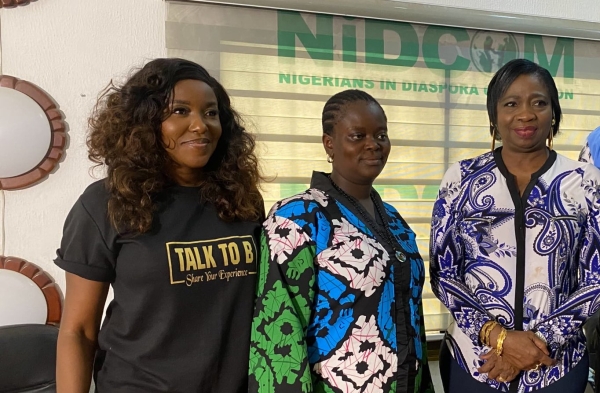
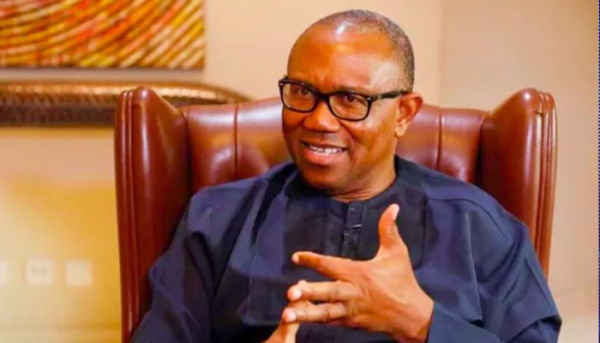
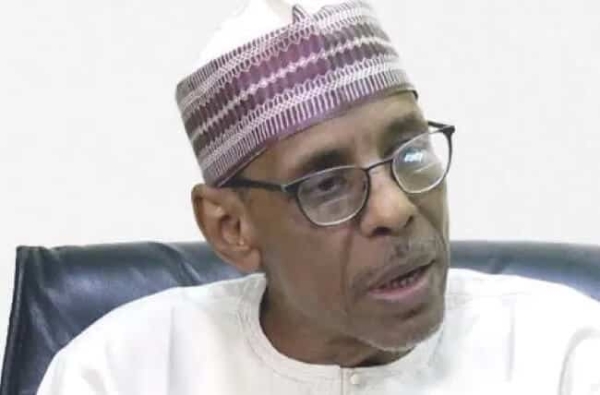
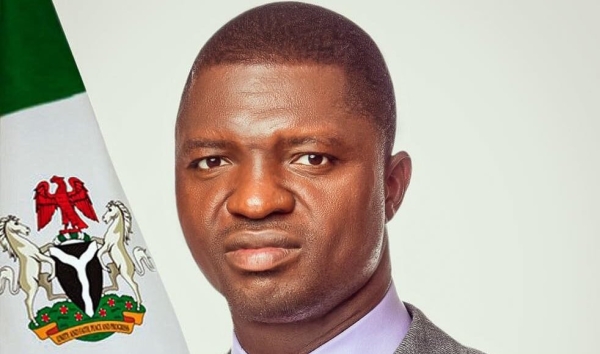
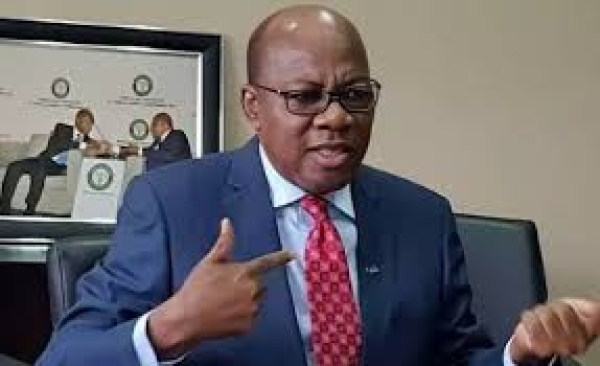
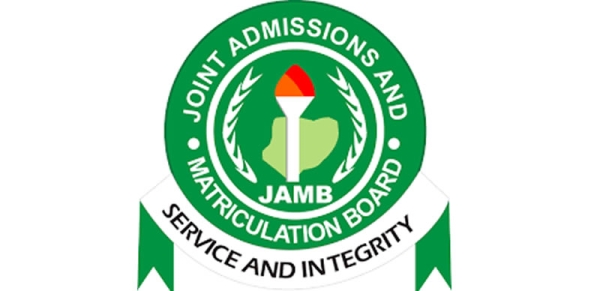
![[OPINION] Catholic Church, the Black Race, Politics, and the USA - Magnus Onyibe](/media/k2/items/cache/e4f03571823d3d13d23e9bb9d40264d6_XL.jpg)
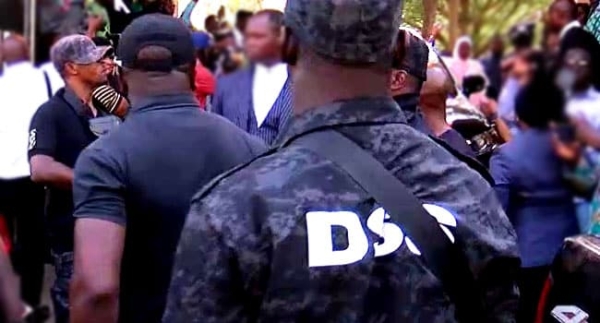

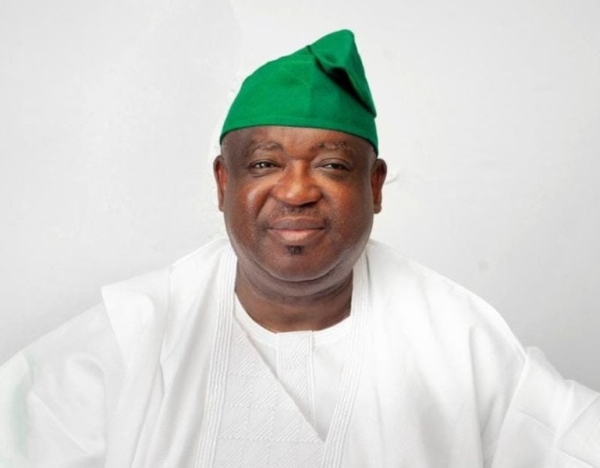





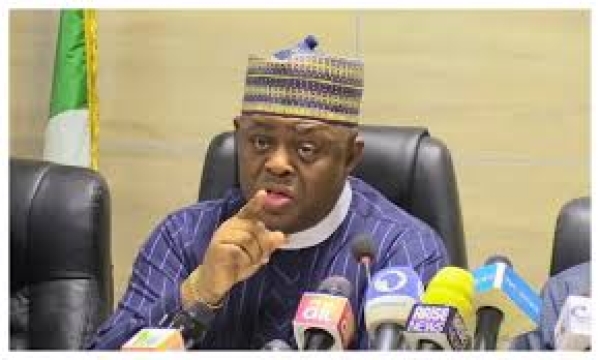
![[OPINION] “Obilogy 101”: Has Attacking Peter Obi Become A Body Of Knowledge? - Isaac Asabor](/media/k2/items/cache/c7762a6a3038dc5222dedb6d26f8990f_XL.jpg)
